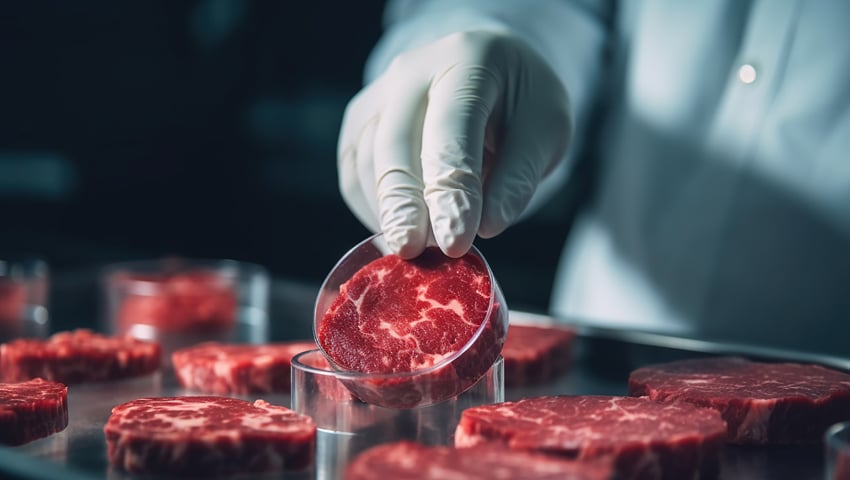CHRIS Smaje’s new book, Saying NO to a farm-free future, will be released on 29th June. The book passionately argues for scaling up the pro-nature principles of low-energy, biodiverse and agroecological farming, and for putting the power back into the hands of small-scale farmers and producers, and the local communities that support them.
In the face of ongoing food, energy and environmental crises, Smaje, a farmer and social scientist, has become one of the most prescient voices on the future of farming.
In Saying NO to a farm-free future, he explores the false promises and unconsidered consequences of food techno-solutions advocated by ecomodernists like George Monbiot, arguing that we should not divorce ourselves from rural living and must embrace a future that includes farming.
The book will be released amongst great acclaim. Simon Fairlie, editor of The Land magazine, has described it as “devastating critique of the farm-free future projected by ecomodernists”, while Allan Savory has said that it politely demolishes Monbiot’s “ecologically naïve belief that urban dwellers can subsist on food manufactured by corporations”.
Talking to 8.9 News, Chris Smaje said “Ecomodernism is an movement geared around the idea that all the big global high energy trends in our society – that we have to embrace them, but we have to make them kinder to people and kinder to nature. So, the four key things in ecomodernism are urbanism, nuclear power, biotech food (originally GMOs, but now precision fermentation), and rewilding nature – there’s this idea that we can concentrate food production and therefore leave more land to nature.”
However, “A lot depends on your view of energy futures. My view is that we’re not going to be able to decarbonise the energy system at existing levels and costs and versatilities of energy that we’ve become used to with fossil fuels. So, I think that points inherently to localism – it points to lower energy, more job rich forms of agriculture, more people in the countryside, more cycling of nutrients and wastes – and less urbanism, because cities are massive energy sinks – so yes, a very different vision to Monbiot’s.”
“It’s worth remembering – people talk about urbanisation as if people wanted to urbanise – but there’s an enormous history of enclosure, farming engrossment and colonial land-grabbing behind urbanization. It not a particularly rosy story, so the challenge is to make ruralisation a nicer story that urbanisation has been.”
There is a question mark over whether the scale of Monbiot’s media platform is dangerous to future societies. Smaje said “There is a narrowness in the mainstream ecomodernist story – the ecomodernists rule the roost. There’s this idea that there is no alternative. George Monbiot historically has been this radical green voice putting a different perspective, so it’s particularly worrying to me that he’s now moved into this technofix camp. This is a time when we need radically different visions, or at least a debate with radically different voices, and there’s not a lot of that in the wider media now. So, yeah, that is a concern.”
Saying NO to a farm-free future passionately articulates why we must reject the techno-solutionism of ecomodernist approaches. The book outlines why climate and economic crises mean that there needs to be more space for livestock and farmers in the countryside. Smaje explains the consequences that techno-solutions and digital fixes would have on food production and supply chains as well as local economies – and shows why moving people out of the countryside and into cities doesn’t necessarily protect biodiversity, but instead gives green-washing corporations the opportunity to gobble up land.
Author, Chris Smaje, and 8.9ha Chief Editor, ffinlo Costain, will have a public conversation about Saying NO to a farm-free future at its launch in Frome on 22nd June. To order tickets, please visit Eventbrite.
Click here to pre-order Saying NO to a farm-free future.
